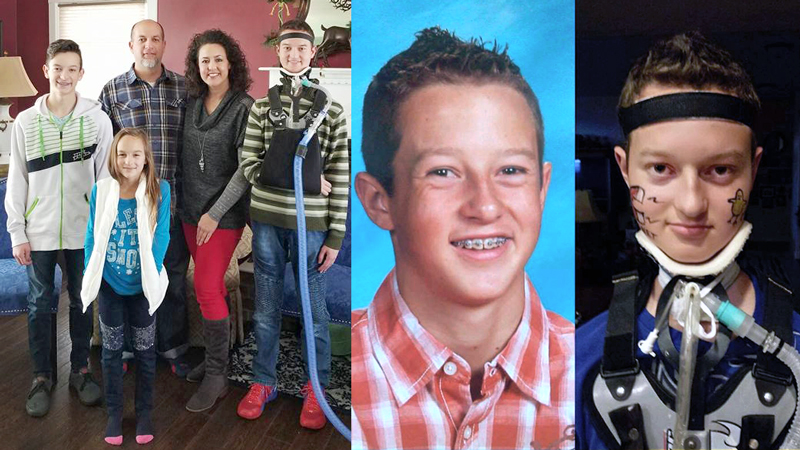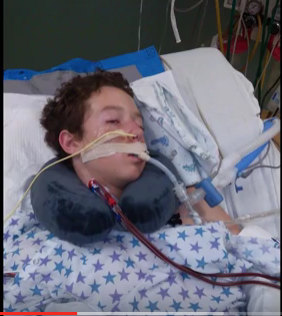Colton’s Story: HPV vaccine paralyzed him

Colton was a healthy, active, perfectly normal young boy. That is, until he received the HPV vaccine. It was agreed by doctors that Colton suffered a severe adverse reaction and vaccine injury to the Gardasil vaccine. The doctors reported his vaccine injury to the Vaccine Adverse Event Reporting System (VAERS).
On February 17, 2014, Colton was almost completely paralyzed, and that was the beginning of his 88-day hospital stay.
This is what happened because of a Gardasil vaccine.

Colton is one of the thousands of severely vaccine-injured children who ultimately lost his life and succumbed to the toxic travesty of vaccine injury and damage. Another tragic death of a child damaged by and caused by vaccines, and in this case, it was the Gardasil/Human Papilloma Virus Vaccine (HPV) that took his life.
Are the studies showing HPV vaccine safety?
Dr. Lucija Tomljenovic, PhD, points out:
“When one looks at the independent literature, so studies that are not sponsored by the vaccine manufacturers with relation to Gardasil there have been several reports documenting multiple sclerosis and encephalitis, which is brain inflammation, in girls who have received their Gardasil vaccine. Just because a study sponsored by the manufacturers does not identify problems with the vaccine does not necessarily mean the vaccine is safe.
In fact, if one looks at the manufacturer studies, they’re often not designed to detect serious adverse events. There was a study done by a group of researchers sponsored by Glaxo Smith and Kline and they were looking at Cervarix, which is another HPV vaccine, and the authors acknowledged that none of the studies that they evaluated have been designed to detect autoimmune diseases. So obviously, you’re not going to find what you’re not looking for. And in spite of these obvious flaws, they concluded that there is no evidence that Cervarix is associated with increased risk for autoimmune diseases, and this is absurd because you haven’t looked for it, the study has not been designed to detect autoimmune diseases.”
– Dr. Lucija Tomljenovic, PhD, Post-doctoral Fellow at the University of British Columbia where she works in Neurosciences and the Department of Medicine (3).






